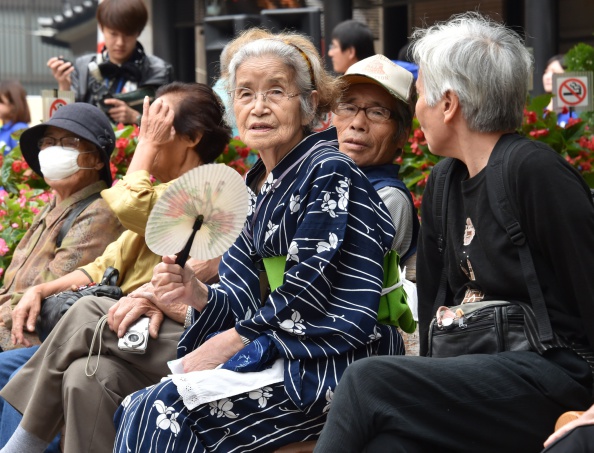
Every year on Senior’s Day, new Japanese centenarians receive a special sakazuki — a silver cup valued at around $64. But as the country’s population continues to grow, the Japanese government has realized that it simply can’t afford to be giving out such lavish gifts any longer.
According to Japan’s Ministry of Health, Labor and Welfare, 29,357 people over the age of 100 were registered in the country last year. When the sakazuki program began over 50 years ago in 1963, there were only 153, the Japan Times reports. The gift program’s cost has risen to over $2 million in 2014 alone.
Japan is renowned for the longevity of its elders, breaking the world record repeatedly for longest-living population. The gift dilemma signals a larger trend for the country, as its demographics continue shifting toward an increasingly aging population. The government expects that, by 2018, the country will have around 39,000 centenarians, the Times says.
The government doesn’t want to leave centenarians unacknowledged altogether though — instead, it’s considering making the sakazuki from a cheaper material or simply sending a congratulatory letter, according to the Times.
More Must-Reads From TIME
- The 100 Most Influential People of 2024
- Coco Gauff Is Playing for Herself Now
- Scenes From Pro-Palestinian Encampments Across U.S. Universities
- 6 Compliments That Land Every Time
- If You're Dating Right Now , You're Brave: Column
- The AI That Could Heal a Divided Internet
- Fallout Is a Brilliant Model for the Future of Video Game Adaptations
- Want Weekly Recs on What to Watch, Read, and More? Sign Up for Worth Your Time
Contact us at letters@time.com